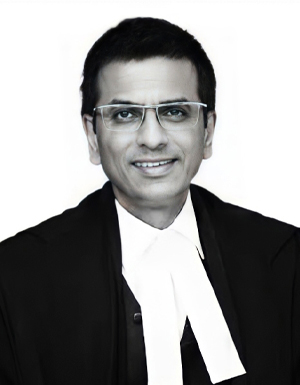
Meet Dr Justice D Y Chandrachud and his Notable Judicial decisions
Justice Dhananjaya Yeshwant Chandrachud, the 50th Chief Justice of India, served from November 2022 to November 2024 and is widely regarded as one of the most influential and reformist judges in recent Indian history. Over his Supreme Court tenure, he participated in more than 1,200 benches and authored over 600 judgments, leaving a profound mark on constitutional law, civil liberties, gender justice, and judicial transparency.
Judicial Career and Philosophy
Justice Chandrachud is celebrated for his progressive, rights-oriented approach and his willingness to address complex social, political, and technological issues. He championed judicial transparency, technological modernization of the courts, and access to justice, steering the judiciary through the COVID-19 pandemic with a rapid transition to virtual hearings.
Landmark Judgments
1. Right to Privacy (Justice K.S. Puttaswamy v. Union of India, 2017)
Justice Chandrachud authored the majority opinion in the historic nine-judge bench ruling that recognized the right to privacy as a fundamental right under Article 21. This judgment underpins later decisions on data protection, bodily autonomy, and personal liberty.
2. Decriminalization of Homosexuality (Navtej Singh Johar v. Union of India, 2018)
He was part of the bench that struck down Section 377 of the IPC, decriminalizing consensual same-sex relationships. The verdict was a milestone for LGBTQ+ rights and equality in India.
3. Electoral Bonds Case (2024)
As CJI, Chandrachud presided over the five-judge bench that unanimously struck down the Electoral Bond Scheme for political funding, holding it unconstitutional for violating the right to information and transparency in political donations. The Court ordered the disclosure of all bond transactions, reshaping the landscape of political funding in India.
4. Ayodhya Land Dispute (2019)
Justice Chandrachud was on the bench that delivered the unanimous verdict in the Ayodhya-Babri Masjid case, awarding the disputed land for the construction of a Ram temple and directing the allocation of alternative land for a mosque. The judgment ended decades of religious and political conflict.
5. Article 370 Abrogation (2023)
He headed the bench that upheld the abrogation of Article 370, affirming the constitutional validity of the government’s actions regarding Jammu and Kashmir and clarifying the temporary nature of the provision.
6. Abortion Rights for Unmarried Women (2022)
Justice Chandrachud expanded abortion rights, holding that unmarried women have the same right as married women to seek termination of pregnancy up to 24 weeks, advancing reproductive autonomy and gender equality.
7. Caste-Based Discrimination in Prisons
He delivered a groundbreaking judgment declaring caste-based discrimination in prisons unconstitutional, directing reforms in prison manuals to ensure dignity for all prisoners.
8. Sub-classification within SC/ST Categories (2024)
He led a seven-judge bench that upheld the power of states to create sub-classifications within Scheduled Castes and Tribes, provided such laws are based on empirical evidence, thus enabling more targeted affirmative action.
9. Same-Sex Marriage Rights (2023)
While the bench did not legalize same-sex marriage, Chandrachud’s judgment recognized the discrimination faced by queer couples and called for government action to address their rights, reflecting his nuanced approach to evolving social issues.
10. Dissent in Aadhaar Case
Justice Chandrachud’s dissent in the Aadhaar judgment is notable for its defense of privacy and critique of mandatory biometric identification, highlighting the need for robust data protection.
Legacy
Justice D.Y. Chandrachud’s tenure is defined by his unwavering commitment to constitutional rights, transparency, and judicial modernization. His landmark judgments have advanced privacy, equality, and social justice, shaping the trajectory of Indian democracy and jurisprudence for generations to come.












comments